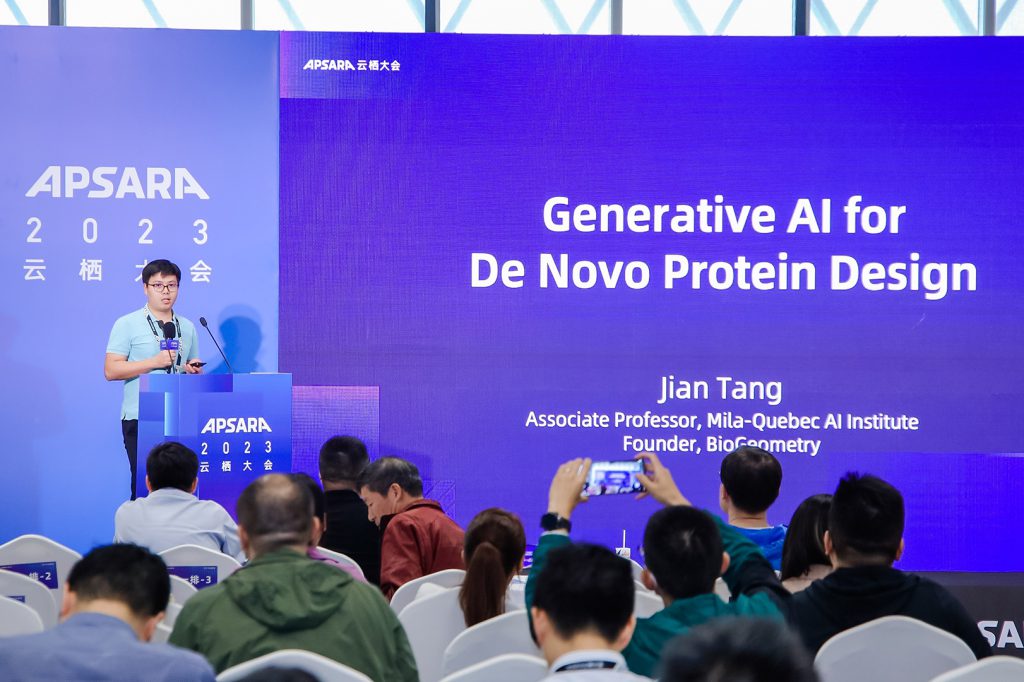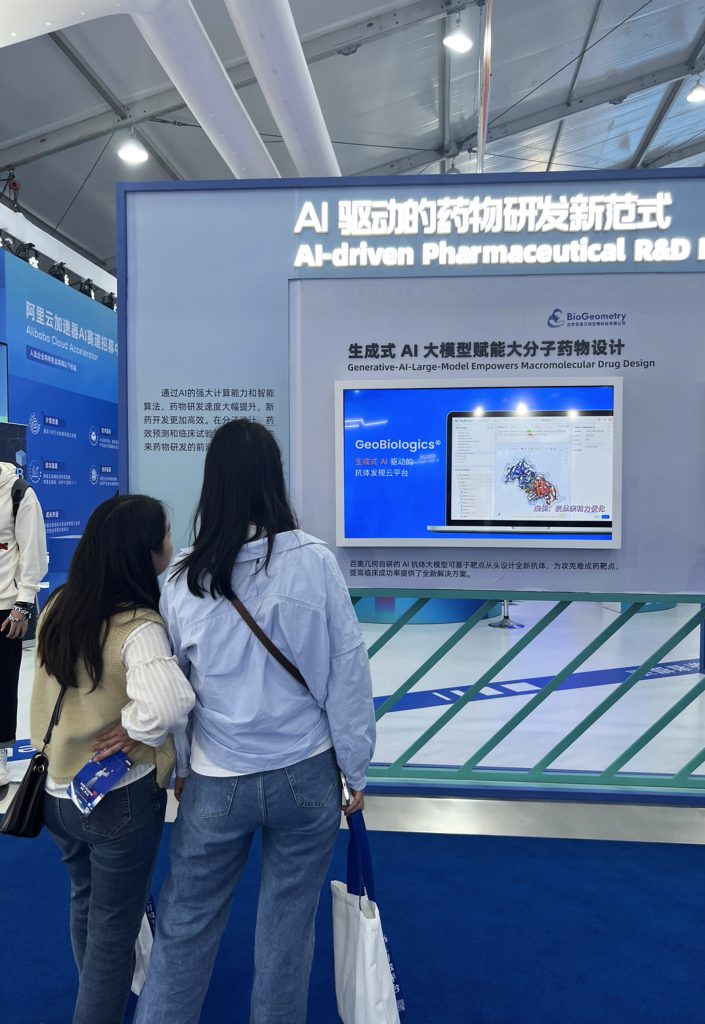From October 31 to November 2, 2023, the 2023 Apsara Conference was grandly held in Yunqi Town, Hangzhou. BioGeometry as a rising star in AI-driven large molecule biomedicine and a partner of Aliyun in the healthcare and biopharmaceutical industry, was invited to participate.

At the sub-forum on “Innovative Applications of AI in the Life Sciences Industry,” Dr. Jian Tang, founder and CEO of BioGeometry, delivered a keynote ” Generative Al for De Novo Protein Design”. Before the advent of the era of generative AI, people could only discover biopolymers such as antibodies and enzymes through various screening methods from nature or perform limited rational modifications on existing molecules. Utilizing geometric deep learning and generative models, BioGeometry is leading the paradigm shift from molecular discovery to molecular design. Structure-based molecular design models, having learned from massive sequences and structural data, can significantly reduce the cost of biopolymer discovery and optimization, improve the success rate, and have the potential to innovate in combating difficult-to-drug targets, addressing key issues in medical, environmental, energy, and food sectors.
Dr. Tang introduced that BioGeometry has transformed years of accumulated experience and proprietary models in AI-driven biologics into the GeoBiologics antibody design platform, offering high-performance, standardized, and user-friendly SaaS-based one-stop AI services to partners in the pharmaceutical industry such as pharmas, BioTechs, and CROs. Thanks to computational power support from Intel and Aliyun, GeoBiologics has profoundly enabled preclinical antibody drug development with AI, producing uniquely advantageous solutions in antibody generation, screening, and optimization processes. Additionally, based on cloud-native architecture, GeoBiologics can also be conveniently deployed privately to ensure corporate data security.

In the Life Sciences Exhibition Area of the Industry Innovation Pavilion at the Apsara Conference, BioGeometry conducted a themed display on “Generative Al Large-Model Empowers Large Macromolecular Drug Design,” attracting many attendees to stop, watch, and engage in discussions. Attendees are generally familiar with the application of generative AI in fields like text, images, and videos, but many were curious about its critical role and broad prospects in molecular de novo design. Unlike generating two-dimensional images, molecular design must consider electron and steric effects in three-dimensional space and generate/optimize molecular sequences and structures. This requires generative AI models to have high capabilities and “talents” (such as inductive biases). As a pioneer in generative molecular design, BioGeometry has organically integrated cutting-edge generative models like normalizing flows and diffusion probabilistic models with geometric deep learning, taking the lead in applying them to tasks such as molecular conformation prediction, protein modification, and de novo antibody design, laying a solid algorithmic foundation for the AI-driven biologics platform.
As life persists, so does intelligence. Merging proprietary algorithms, in-house data, and powerful computing, BioGeometry is turning the vision of AI-driven biologics into reality.
